A two-day training session for National Police officers from Dnipropetrovsk Oblast began at Dnipro State University of Internal Affairs (DSUIA), focusing on interaction with children who are victims, witnesses, or perpetrators of criminal offenses.
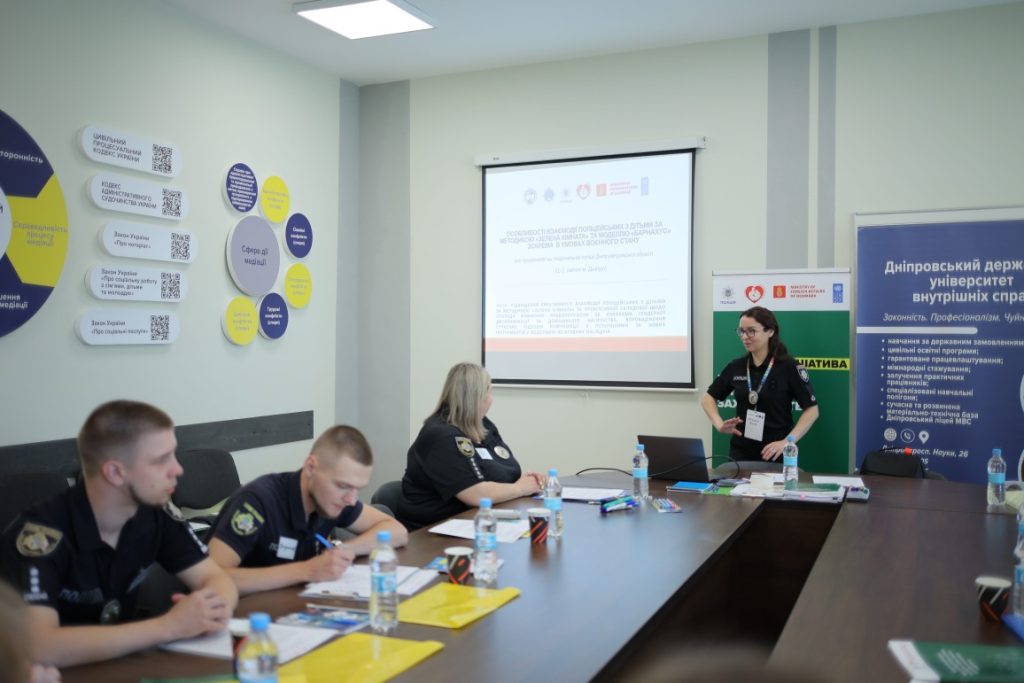
The event was supported by the United Nations Development Programme (UNDP) in Ukraine, with financial backing from the Government of Denmark. Co-organizers included the “Slavic Heart” charitable foundation and Ukraine’s Juvenile Police.
The training was opened by DSUIA First Vice-Rector Ihor Magdalina and Assistant to the Rector on Gender Issues, Doctor of Law, Professor, Honored Lawyer of Ukraine Larysa Nalyvaiko.
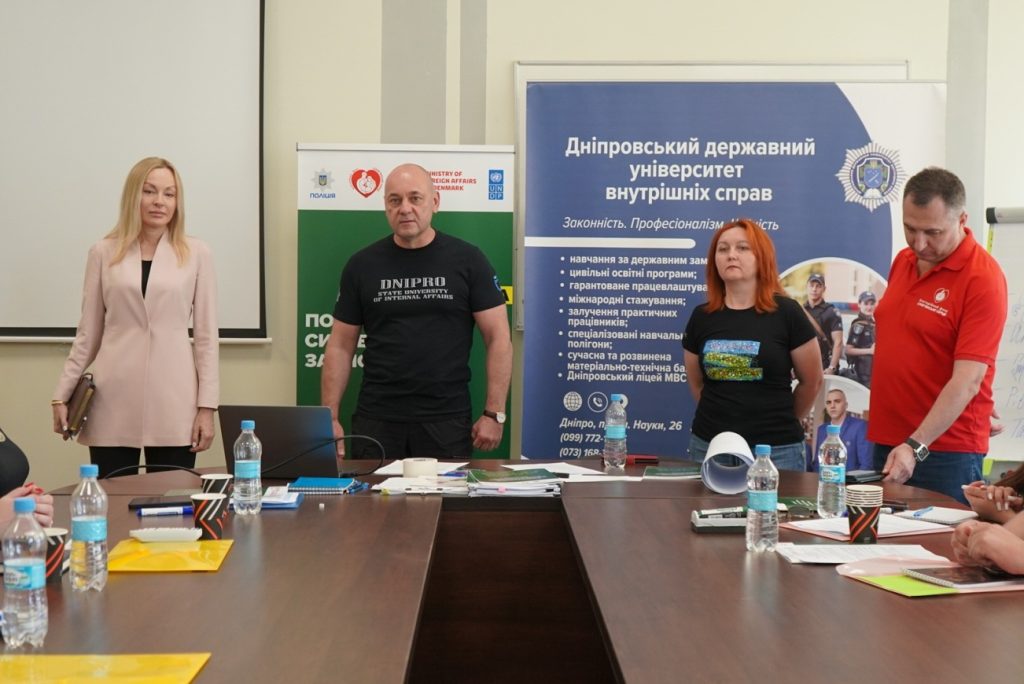
The theme of the training was “Peculiarities of Police Interaction with Children Using the ‘Green Room’ Methodology and ‘Barnahus’ Model, Particularly in Wartime Conditions.”
The event aimed to enhance officers’ awareness and professional competence in child-focused methodologies, specifically the “Barnahus” model and “Green Room” approach, under wartime conditions. Participants included officers from juvenile prevention units and investigators authorized to handle cases involving children.
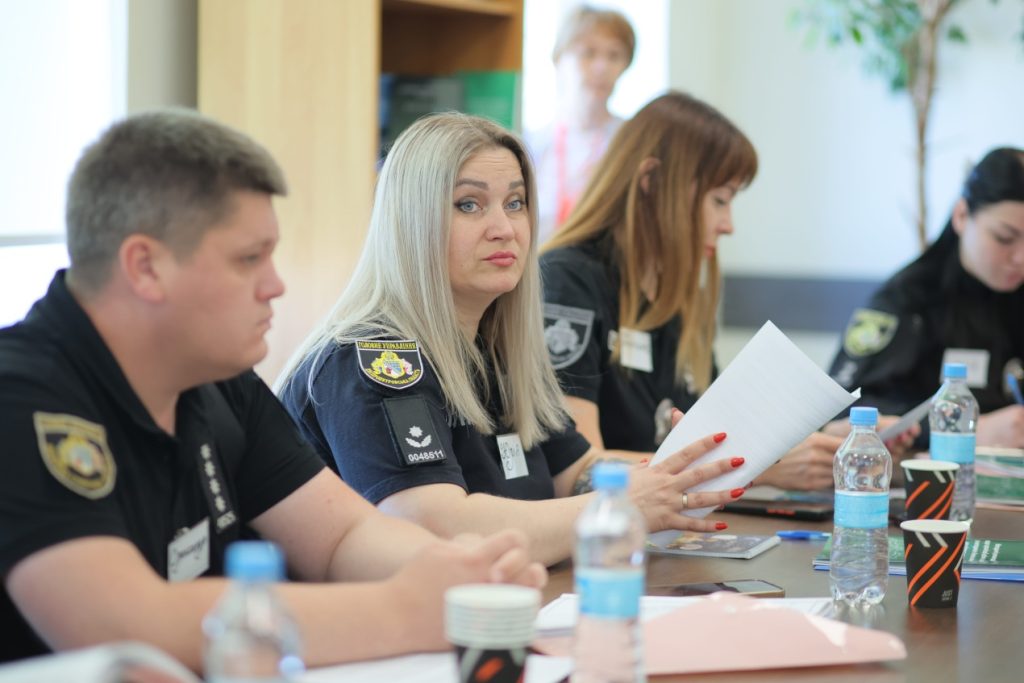
The training program covered national and international child rights standards, child-centered practices, protocols for interviewing children with consideration of age and psychological factors, and models for providing initial psychological assistance to victims.
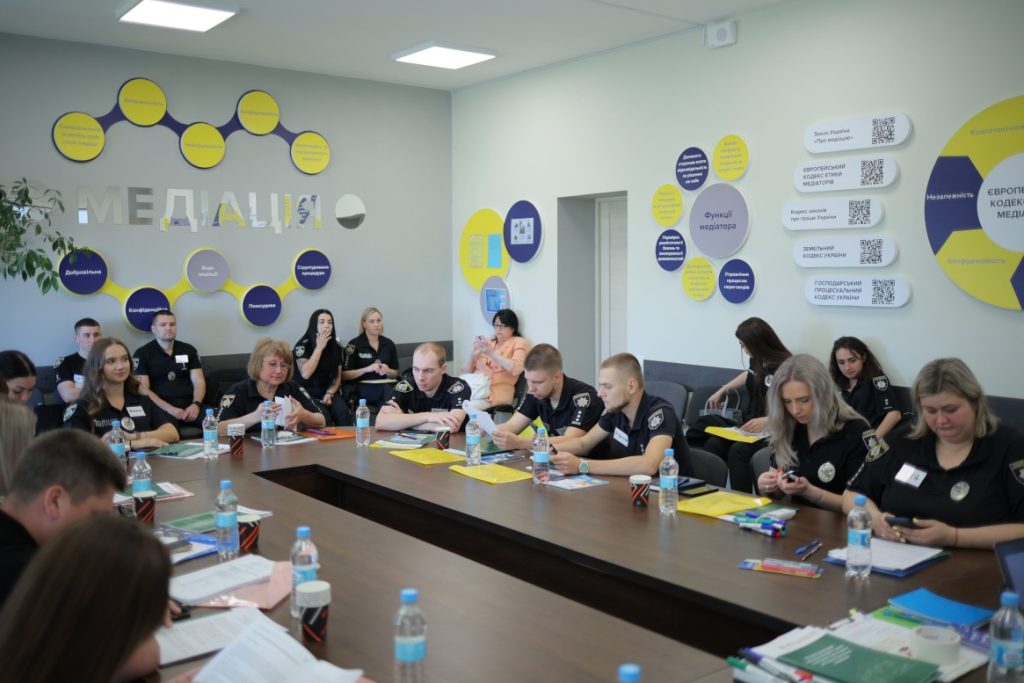
The trainers were:
• Alina Harkusha, Associate Professor of the Criminal Procedure Department at DSUIA, Candidate of Law, Associate Professor, Police Major;
• Oksana Don, psychologist, art therapist, expert with the Israeli Trauma Coalition, and coordinator for child and adolescent programs at the NGO “Crisis Psychological Assistance in Dnipro and Oblast.”
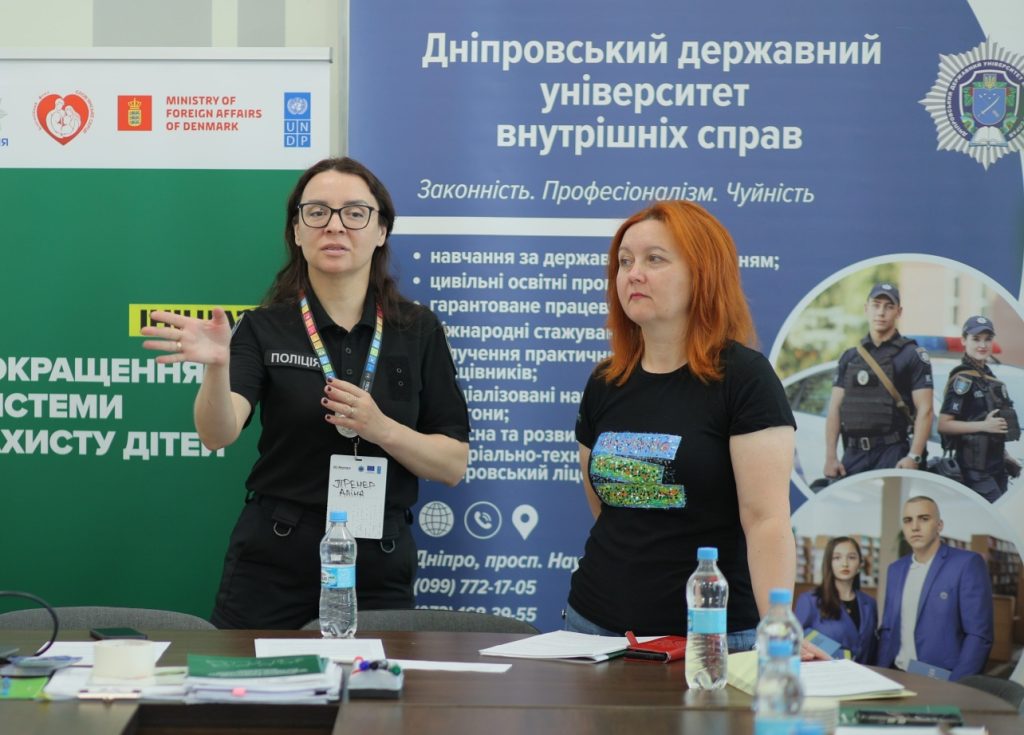
The training includes theoretical and practical sessions, interactive exercises, case analyses, simulations, and reflective discussions. Topics cover the psycho-emotional state of children who have experienced violence, the role of psychologists in working with traumatized minors, child-centered approaches in policing, and restorative justice practices involving children.
— 253

